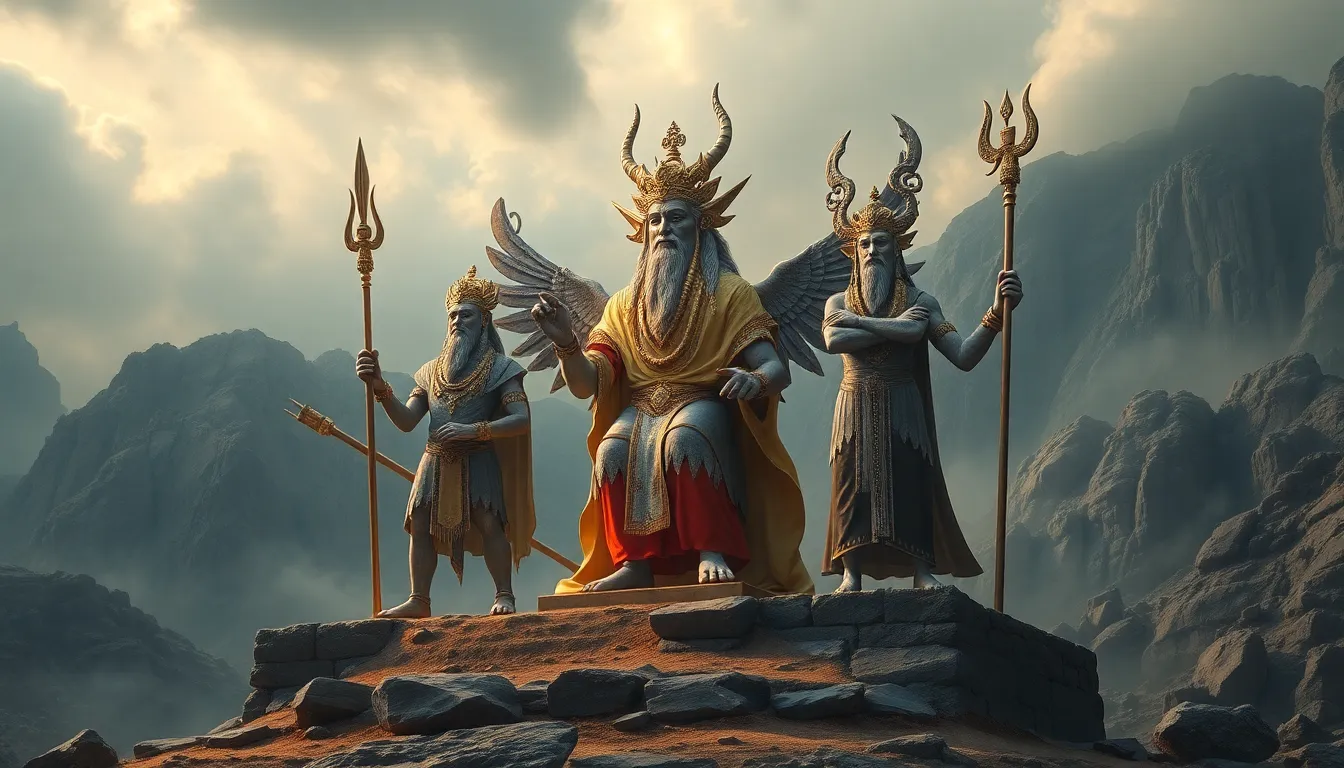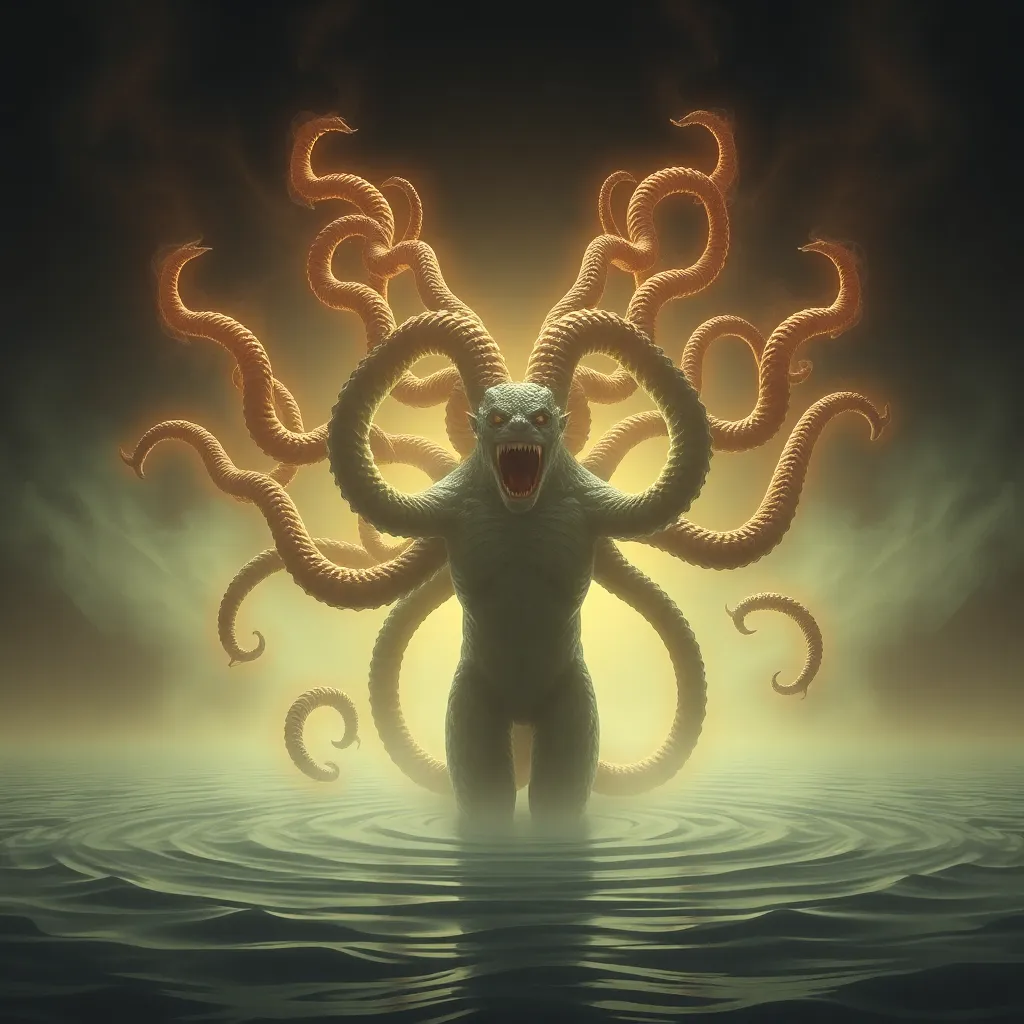The Most Notable Myths of Ancient Deities and Their Impact on Society
I. Introduction
Ancient deities are the divine figures worshipped by various civilizations throughout history, embodying the values, fears, and aspirations of their cultures. Each deity often represents specific aspects of life, nature, or human experience, and their myths serve as narratives that explain the world around us. Mythology, therefore, is not just a collection of stories; it is a rich cultural reflection that reveals the beliefs and values of a society.
Studying these myths is crucial for understanding societal values, as they provide insight into how ancient peoples interpreted their existence, formed their identities, and established moral frameworks. This exploration of ancient deities and their myths allows us to grasp the complexities of human experience and the evolution of cultural norms.
II. The Role of Myths in Shaping Cultural Identity
Myths play an essential role in storytelling, preserving heritage, and shaping cultural identity. They act as vessels through which the values and beliefs of a society are transmitted from generation to generation.
A. Myths as Storytellers of Heritage
Myths often serve as the historical backbone of a culture, encapsulating shared experiences and collective wisdom. They provide frameworks for understanding the past and offer lessons for the future.
B. The Connection Between Deities and Nationalism
Many ancient deities are closely tied to national identity and pride. They symbolize the strength and unity of a people, often becoming icons of nationalism.
C. Case Study: The Greek Pantheon and Hellenism
The Greek pantheon, with deities like Zeus, Athena, and Poseidon, played a central role in the identity of ancient Greece. The myths surrounding these gods not only provided entertainment but also reinforced cultural values such as heroism, wisdom, and the pursuit of excellence, which became hallmarks of Hellenistic culture.
III. Prominent Myths of Creation and Their Societal Implications
Creation myths are foundational narratives that explain the origins of the world and humanity. They often reflect the values and beliefs of the societies that tell them.
A. The Enuma Elish and Babylonian Cosmology
The Enuma Elish outlines the Babylonian creation story, emphasizing the themes of chaos and order, and the power of deities like Marduk. This myth reflects the Babylonians’ understanding of their place in the universe and their relationship with the divine.
B. The Genesis Creation Narrative
The Genesis account from the Hebrew Bible presents a monotheistic view of creation, emphasizing the goodness of the world and humanity’s role within it. This narrative has had a profound impact on Judeo-Christian values and ethics.
C. Impact on Moral and Ethical Frameworks
Both the Enuma Elish and Genesis have influenced moral and ethical frameworks within their respective cultures, dictating how societies view life, humanity, and the divine.
IV. Love and War: The Duality of Deities in Human Experience
Many ancient deities embody dual aspects of human experience, particularly love and conflict, reflecting the complexities of human relationships.
A. Aphrodite and Ares: Love and Conflict in Greek Mythology
Aphrodite, the goddess of love, and Ares, the god of war, represent the duality of passion and strife. Their interactions in myths illustrate how love can lead to conflict, and vice versa, mirroring human relationships.
B. The Role of Mars in Roman Society
In Roman mythology, Mars was not only the god of war but also a protector of agriculture and fertility, highlighting the interconnectedness of love, war, and sustenance in Roman culture.
C. Societal Reflections on Gender Roles and Relationships
The myths surrounding these deities often reflect societal attitudes towards gender roles and relationships, shaping norms and expectations within their cultures.
V. Myths of Justice and Order: Deities as Moral Guardians
Justice and order are central themes in many mythologies, with deities serving as protectors of societal norms and moral standards.
A. The Egyptian Goddess Ma’at and the Concept of Truth
Ma’at, the Egyptian goddess of truth and justice, represented the cosmic order. Her principles guided the legal and social systems of ancient Egypt, emphasizing the importance of balance and harmony.
B. Zeus as the Enforcer of Justice in Greek Mythology
Zeus, as the chief deity of the Greek pantheon, was seen as the enforcer of justice. His myths often involve the punishment of wrongdoers, reflecting the societal need for law and order.
C. Influence on Legal Systems and Governance
The depictions of these deities have influenced modern legal systems and concepts of governance, underscoring the role of divine authority in establishing moral and ethical standards.
VI. Deities of the Underworld and Their Cultural Significance
Deities associated with the underworld often reflect cultural beliefs about death and the afterlife, shaping societal attitudes towards mortality.
A. Hades and the Greek Afterlife
Hades, the god of the underworld, ruled over the realm of the dead. The Greek myths about Hades provide insights into ancient beliefs regarding the afterlife and the immortality of the soul.
B. Osiris and the Egyptian View of Death
In contrast, Osiris represents resurrection and eternal life in Egyptian mythology. His story reflects the Egyptians’ beliefs in life after death and the importance of funerary practices.
C. Impacts on Funeral Practices and Beliefs in the Afterlife
These myths have significantly influenced funeral practices and cultural attitudes towards death, shaping how societies honor their dead and conceive of the afterlife.
VII. Nature and Agriculture: Deities as Symbols of Sustenance
Many ancient deities are closely associated with nature and agriculture, symbolizing the importance of these elements to human survival.
A. Demeter and the Cycle of Seasons
Demeter, the Greek goddess of the harvest, personifies the cycle of seasons and the agricultural life. Her myth emphasizes the connection between humans and the earth, highlighting the importance of fertility and sustenance.
B. Ceres and the Roman Approach to Agriculture
Ceres, the Roman equivalent of Demeter, also represents agriculture and fertility, reflecting the Romans’ reliance on farming and the land for their survival and prosperity.
C. Societal Dependence on Agricultural Myths
These myths underscore the dependency of ancient societies on agricultural cycles, influencing their festivals, rituals, and daily lives.
VIII. The Transformation of Myths Over Time
Myths are not static; they evolve over time, adapting to new cultural contexts and interpretations.
A. Evolution of Deity Representations in Art and Literature
Over the centuries, the representations of ancient deities have transformed in art and literature, reflecting changing values and beliefs.
B. The Syncretism of Myths Between Cultures
As cultures interacted, myths often blended, resulting in syncretism. This process allowed for the sharing and adaptation of deities and their stories across different civilizations.
C. Case Study: The Adaptation of Norse Myths in Modern Media
Norse myths, such as those surrounding Thor and Loki, have seen a resurgence in modern media, from literature to films, showcasing their enduring relevance and appeal.
IX. The Lasting Legacy of Ancient Deities in Contemporary Society
The influence of ancient deities persists in contemporary society, shaping religion, literature, and cultural practices.
A. Mythology in Religion and Spirituality Today
Many modern religions incorporate elements of ancient mythology, reflecting the enduring nature of these narratives in spiritual practices.
B. Influence on Modern Literature, Film, and Pop Culture
Ancient myths continue to inspire modern literature, films, and pop culture, demonstrating their timeless themes and universal human experiences.
C. The Relevance of Ancient Myths in Modern Ethical Discussions
Finally, the ethical dilemmas and moral questions posed in ancient myths remain relevant today, prompting discussions about justice, love, and the human condition.
X. Conclusion
The myths of ancient deities provide invaluable insights into human experience, cultural identity,

